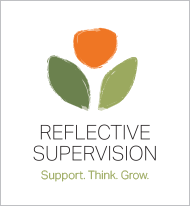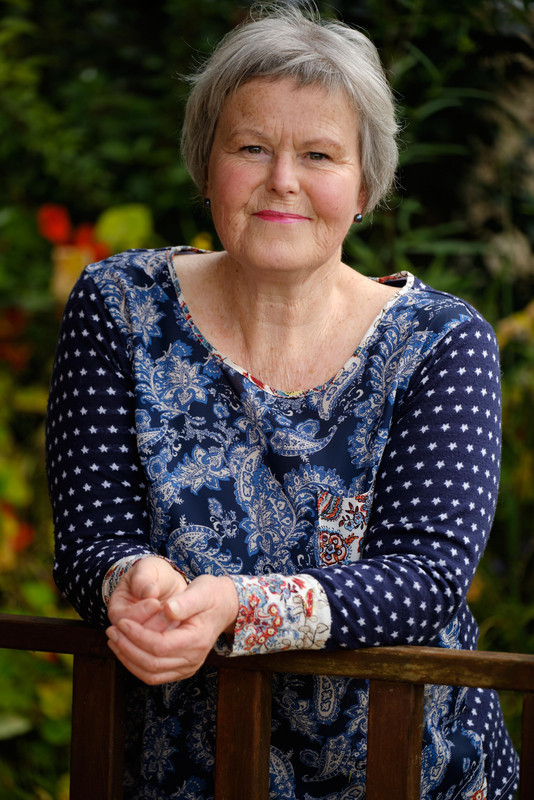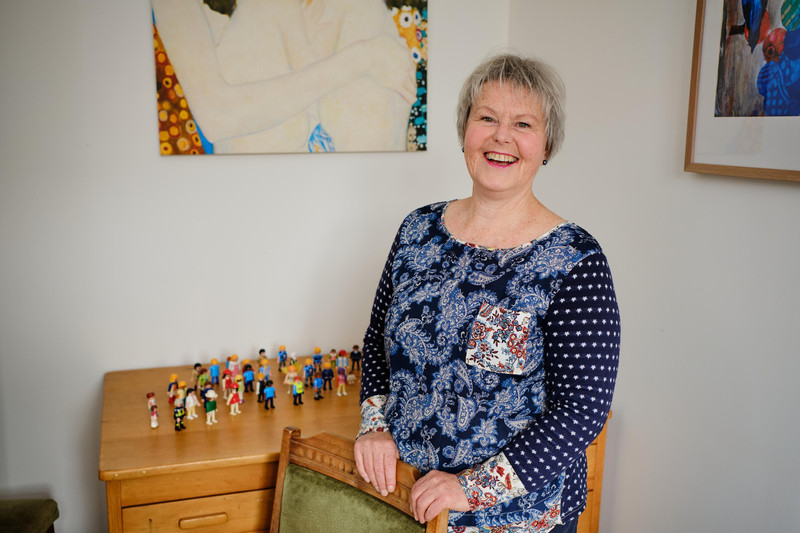How It Works
What is clinical supervision?
Clinical supervision is formalised, protected time with a trained supervisor in order to reflect on practice and create progress and options in working life.
The outcome is enhanced practitioner wellbeing which results in improved retention, improved collegial and cross-discipline relationships and improved client outcomes along with improved work-life satisfaction.
Morag is a member of the Australian Clinical Supervision Association (ACSA) and has completed Clinical Supervision for Role Development training from Clinical Supervision Consultancy, Sydney. She has trained under Paul Spurr and offers Clinical Supervision using the Role Development Model.
Who is clinical supervision for?
Morag works specifically with anyone working in caring professions, such as caregivers, midwives, nurses, physicians, social workers and teachers. Clinical Supervision is for anyone in helping professions and can have a positive outcome for anyone working in or for an organisation, with a boss or encouraging a team. It’s ideal for those working in helping professions such as volunteers, first responders, or anyone client-facing or dealing directly with the public.
Taking the time to reflect on professional practice allows for more sustainable ways of operating in the workplace, it has the potential to help in the workplace with reflection, personal development, an increase in resilience and better ability to cope with scenarios or stressful situations. If you’ve ever thought; is there some way I could be doing this better? If I had someone to talk to about this, would I feel different? Could I have handled this situation differently? Or I don’t understand what this scenario or person is really asking of me? If so, Reflective Supervision could be the right fit for you.
What to expect at your first session of Clinical Supervision:
Get in touch to book a session of clinical supervision. You can email, phone or text if you’re interested in finding out more. Expect a response within two working days. From there we arrange an appointment time. Sessions take place in a sunny room at a private residence, online, or a place of your choice. Get in touch today.
Allow up to two hours for your first appointment. At our first appointment we cover:
- Our ways of working (this is a document we go over, adjust to fit, agree on and co-sign)
- How we maintain confidentiality and privacy for you.
- What and how information is recorded, shared and stored
- How we manager our cell phones
- How we protect the time that you are at Reflective Supervision.
- How we negotiate any safety concerns if they should arise
Morag will introduce you to some of the tools and concepts available for you to explore your practice including Play of Life ® figurines and 2D and 3D concretisation. These tools help to work through scenarios and situations in an easy to manage and thought out way.
From there, we consider our supervision agreement and sign the ‘ways of working’. Our time frames and anything else is agreed on, during the first session, you then have the option of running through a guided exercise which looks at your work environment.
Ongoing sessions of Clinical Supervision:
Time is taken to create a trusted partnership between the supervisee and supervisor. What the supervisee brings to discuss leads to each session. The process is gentle and reflective. Often, supervisees experience becoming more creative in their response to problems and experience an enlivening.
The benefits of clinical supervision have been reported as feeling more supported within the work environment, increased levels of knowledge, confidence, and competence in the workplace. Reduced levels of stress, anxiety and burnout and improved retention of healthcare workers.
Reflective Supervision’s Code of Ethics
Morag is aligned with the Australian Clinical Supervision Association (ACSA), Code of Ethics, including its points on Confidentiality. As a member of the ACSA, Morag stands by the Code of Ethics and Code of Conduct established by the ACSA. The core values are integrity, compassion, respect, courage, openness, and collaboration. The ethical principles that underpin ethical decision-making that we use as a guide are autonomy, beneficence, fidelity, justice and non-maleficence.
Ethical Responsibilities covered in the Code are respect, dual relationships and boundaries, informed consent, conflicts of interest, confidentiality, working agreements or contracts and professional competence.
Cultural Competence
As a New Zealand educated midwife, Morag brings formal education in cultural competency to her role as a Clinical Supervisor. Cultural competence is a component of the Midwifery's pre-registration programme approved by the Midwifery Council of New Zealand.
Culture is not solely ethnicity and includes (but is not limited to); age, gender, sexual orientation, occupation, socio-economic status, ethnic origin and migrant experience, geographical and physical environment, religious or spiritual beliefs and disability.
In midwifery cultural competence means recognising the impact of one's own culture and beliefs on midwifery practice. Cultural competence is the ability to interact respectfully and effectively with people from backgrounds different to one’s own. It means having good personal communication, so that people you interact with can identify what is important for them and are able to acknowledge and incorporate their culture into their individualised care. Morag finds her formal training and skills in cultural competency transfer to her work as a clinical supervisor.
Rights and Responsibilities of the Supervisee in Clinical Supervision (the person attending the session)
You have the right to:
- Be treated with respect, as an equal.
- Some choice about the mode of clinical supervision (one-to-one or group)
- Set most of the agenda as long as the issue ultimately has some effect on the way you do your work
- Confidentiality
- No record made of anything personal you have talked about
- Protected time for the sessions with punctuality and time to talk
- Private space for the sessions
- The safety to talk about any difficulties or vulnerable sessions, if you wish, without being criticised
You are responsible for:
- Empowering yourself to use the sessions in the most effective way.
- Asserting yourself in negotiating decisions, topics and the mode of clinical supervision
- Preparing for clinical supervision sessions by identifying things to reflect on
- Outcomes in terms of your own development and actions you take in practice as a result of sessions
- Making and following through action plans that arise from reflection
- Protecting and adhering to your session times, being punctual and making them a priority
- Arranging cover if needed to ensure you’re not ‘on-call’ during sessions
- Being open to challenge, not interpreting all challenges as personal attacks or discriminatory practice
- Giving feedback to the clinical supervisor
- Using the time to reflect in-depth on issues affecting your professional practice
Rights and Responsibilities of the clinical supervisor (the facilitator of the session)
Has the right to:
- Be treated with respect as an equal
- Not blamed for the supervisees or the organisation's shortcomings
- In exceptional pre-agreed circumstances - break confidentiality
- Challenge any behaviour or values which give concern about the supervisees practice, development or use of clinical supervision
- Challenge any behaviour that is insulting or personally hurtful
- Set boundaries on what issues to listen to the supervisee talking about (say if too personal)
- Refuse requests which make inappropriate demands on the role of clinical supervisor
- Choose whether to work with a person as the clinical supervisor
- Take steps to withdraw from the clinical supervision relationship if they have difficulties in meeting the commitment or there are relationship difficulties which cannot be resolved
Is responsible for:
- Adequately preparing for the sessions, to ensure there are ideally no interruptions a
- Keeping confidentiality (except for explicitly agreed exceptions)
- Being reliable with sessions by being on-time
- Avoiding any other roles on session avoiding any management or educational assessment
- Rebutting inappropriate demands such as outside interference from the supervisee’s colleagues or a break in boundaries
- Offer first aid counselling (not psychotherapy) for current burning issues
- To focus on how quality professional practice can be sustained in spite of personal difficulties
- Encourage the supervisee to seek specialist help or advice when necessary
- Challenge any behaviour or values that the supervisee displays or talks about which give concern
- Ensure they have the necessary backup support
A bit about Morag and Reflective Supervision
As a Clinical Supervisor, Morag's goal is for enhanced practitioner sustainability and wellbeing, which in turn generates improved client outcomes, staff retention, working life satisfaction and collegial and cross-discipline relationships. The supervisor should be objective, and demonstrate the qualities of neutrality, openness, reassurance and confidential in order to create a safe place for reflection.
Morag comes from a background in midwifery. She understands that more support within the work environment and more conversations around the high levels of emotional distress sometimes experienced by practitioners, improves wellbeing and retention of healthcare workers in New Zealand.
Is Reflective Supervision right for you?
You may be thinking this sounds nice, but that it’s ‘not necessary’ or ‘you simply don’t have the time’. It’s important to find the time for reflection to truly improve on your professional practice and to structure it into your professional development. Accessing a space for ‘safe reflection’ and finding the time to ‘unscramble’ what’s in your head in a non-critical and supportive space is incredibly important.
Whether in a group setting or one-to-one session, professionals have experienced feeling more supported, more valued and having a clearer understanding of themselves within their daily working life. Reflective Supervision gives staff the opportunity to discuss and reflect on issues from the workplace, helping them see things differently and have a better understanding of what is happening to them in a non-threatening way. It can help staff develop personally, feel valued and created an increased sense of wellbeing.
If it’s something you’d like to consider as part of your professional practice, we’d highly recommend it. Contact Morag at Reflective Supervision today on 027 671 8221.






